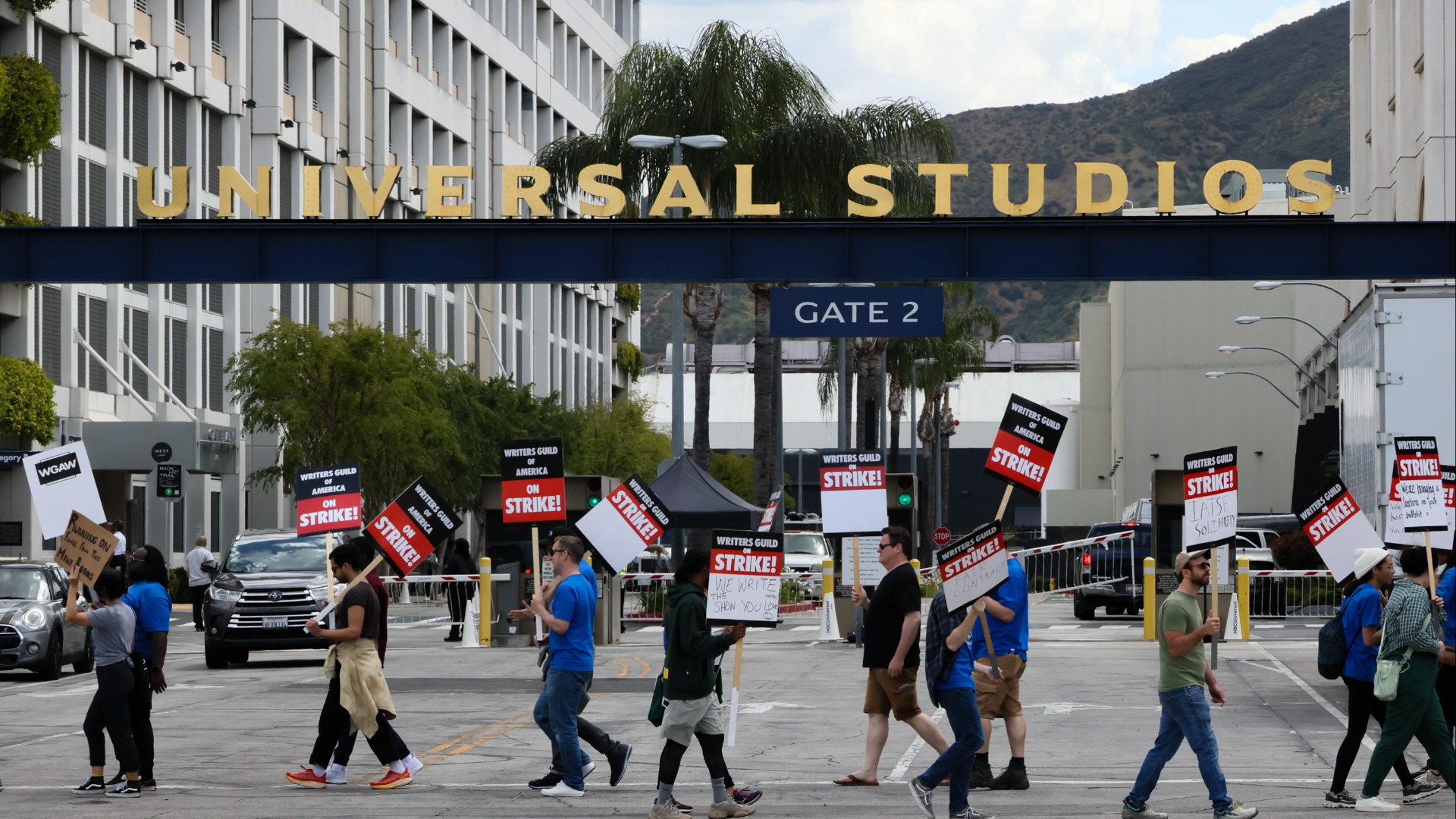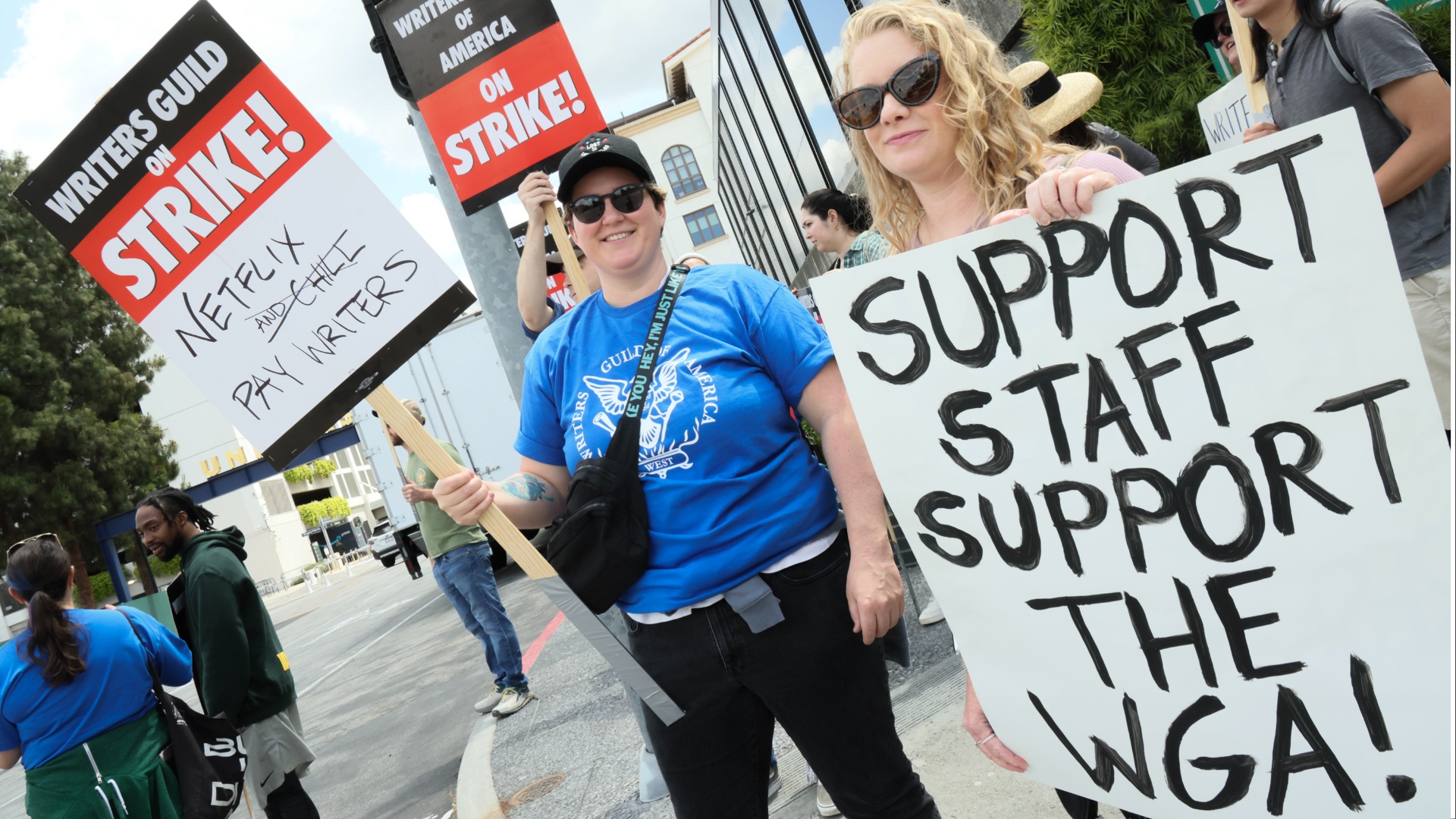
The WGA strike has entered its 100th day.
The Writers Guild of America, a union that represents writers in film, television, radio, and online media, took their first industrial action since 2007 on May 2 and went on strike after the guild failed to negotiate a new contract with the Alliance of Motion Picture and Television Producers. In the last 100 days, SAG-AFTRA has joined in with a strike of their own – but both Hollywood actors and writers are nowhere near close to striking a proper deal for fair wages.
How it all started

On May 1, the WGA issued a statement with the following subheading: "Our negotiation with the studios and streamers has failed to reach an agreement. We are on strike." The statement explained that the WGA Negotiating Committee had spent six weeks negotiating with the likes of Netflix, Amazon, Apple, Disney, Discovery-Warner, NBC Universal, Paramount, and Sony under the umbrella of the Alliance of Motion Picture and Television Producers (AMPTP). The goal was to achieve a new contract that reflects fair pay – namely residuals from streaming media – and protections that include "use of material produced using artificial intelligence or similar technologies."
The WGA strike officially went into effect on Tuesday, May 2, 2023 at 12:01 am PT/3:01 am ET.
What's been accomplished
Unfortunately, not much when it comes to getting any closer to fair pay. The WGA and the AMPTP met on August 4, but failed to reach an agreement to resume contract negotiations. The AMPTP insists it was willing to increase its offer on a few writer-specific TV minimums and discuss AI, with the WGA insisting that it was "willing to engage with the companies and resume negotiations in good faith to make a fair deal for all writers".
Over the last 100 days, VFX workers voted to unionize for the first time ever at Marvel; WGAE and the Motion Picture Editors Guild joined forces to form the Story Syndicate Union; and, perhaps most notably, SAG-AFTRA went on strike. After many actors were picketing alongside writers in solidarity, a simultaneous strike seemed inevitable. Much like their WGA compatriots, SAG-AFTRA members are striking for increased minimum pay rates and increased streaming residuals.
What comes next

After 100 days, Hollywood remains at a standstill.
"The refusal to take writers’ reasonable proposals seriously has caused the WGA strike to last 100 days and counting; it serves only as a milestone of shame for the AMPTP. They and their member studios are wholly responsible for the over three-month shutdown of the industry and the pain it has caused workers and all others whose livelihoods depends on this business," Chris Keyser and David A. Goodman, co-chairs of the WGA negotiating committee, said in a joint statement.
"The cost of settling the WGA and SAG-AFTRA strikes is far less than the damage their intractability has caused. Ultimately, the studios have no choice but to make a fair deal. Until then, we remain resolved and united."
Per Deadline, there is a "great desire to forge ahead" with contract discussions – and it's possible that many more may happen soon, though the results of said discussions remain to be seen. TV and movie productions continue to be shut down or temporarily paused, which is saving Hollywood studios money – and effectively starving actors and writers.
"We’ve got even more clarity about what writers need than we had on day one. The guild is more united than it’s ever been," added Michele Mulroney, VP of the WGAW.
For more, check out our guides to the WGA strike and the SAG-AFTRA strike to see what they might mean for your favorite shows and movies.







